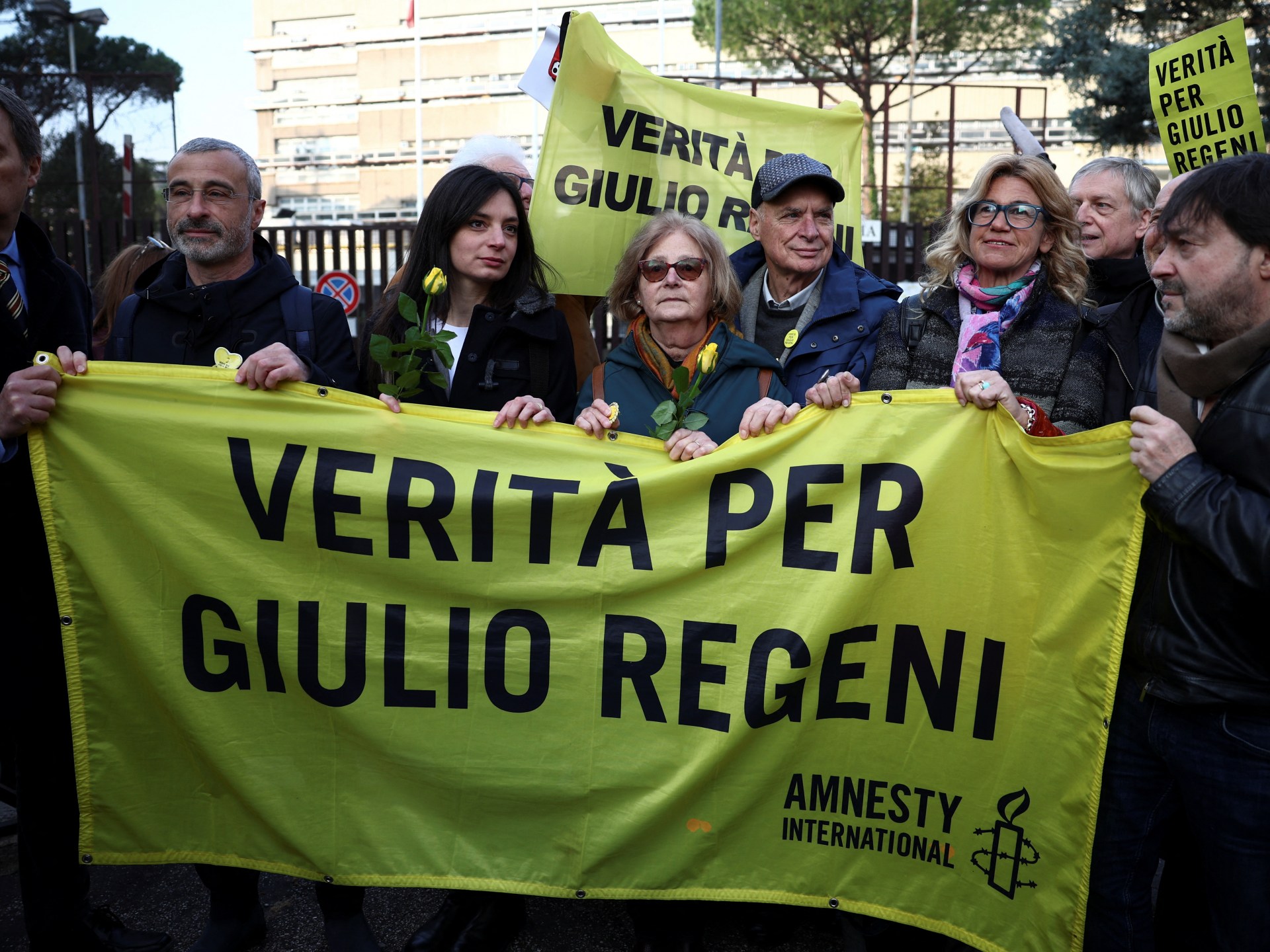Four Egyptian officials back on trial in Italy over death of Giulio Regeni | Courts News

Italy’s top court decided last year to proceed with the trial against the four officials, who will be tried in absentia.
The trial of four Egyptian security agents accused of kidnapping and murdering an Italian student in Cario opened in Italy on Tuesday following a prolonged delay in the proceedings over its legality.
Giulio Regeni, a postgraduate student at the United Kingdom’s Cambridge University, disappeared in the Egyptian capital in January 2016, where he was researching union activities among street vendors as part of his doctoral thesis.
A month after his disappearance, the body of the 28-year-old was found on the side of a highway on the edge of Cairo, bearing cigarette burns, broken teeth, and fractured bones. A post-mortem examination showed he had been tortured before his death.
Human rights activists also said the marks on his body were reminiscent of those resulting from widespread torture in Egyptian security agency facilities.
Regeni’s parents, Paola and Giulio Regeni, attended the opening court session on Tuesday and posed outside the court with the banner “Truth for Giulio Regeni”.
The Regeni family lawyer, Alessandra Ballerini, said after the short hearing, “We have been waiting for eight years this moment.”
“We finally hope to have a trial against those who perpetrated all the possible pain in the world on Giulio.”
Italian prosecutors believe four Egyptian officials were involved in the killing, but have not been able to track them down to issue summons, so they are being tried in absentia.
Tuesday’s hearing marks the second time the four Egyptian officials have gone on trial on charges related to Regeni’s death, after proceedings originally opened in October 2021 but were immediately suspended after the judge questioned whether the prosecution would be legitimate if it were not clear that the accused even knew they had been charged.
But Italy’s top court dismissed the decision in September last year, saying Egypt’s failure to cooperate should not impede the trial.
Tranquillino Sarno, a public defender for one of the accused, asked for continued efforts to contact the four officials on Tuesday.
He asked that the court ensure Egyptian authorities “can be officially informed of this trial in Italy, as today, we don’t even know if they are still alive”.
Egypt has denied claims that it refused to help the investigation into Regeni’s death, saying its authorities cooperated with Italian officials and that its investigations concluded that Regeni’s killers are unknown.
Officials also said that the Italian investigation was not based on consistent evidence, denying any responsibility from the country’s security apparatus.
Egyptian police earlier claimed that Regeni was killed by gangsters who specialised in impersonating police officials, kidnapping foreigners, and stealing their money and that they were killed during an exchange of fire with the police. But Egyptian judges ruled that the men were not Regeni’s killers.
The trial represents the first time Egyptian officials have been prosecuted abroad for alleged crimes that human rights groups have said have been committed on a larger scale in the North African country.
After Tuesday’s preliminary motions, the president of the jury adjourned the proceedings until March 18.



